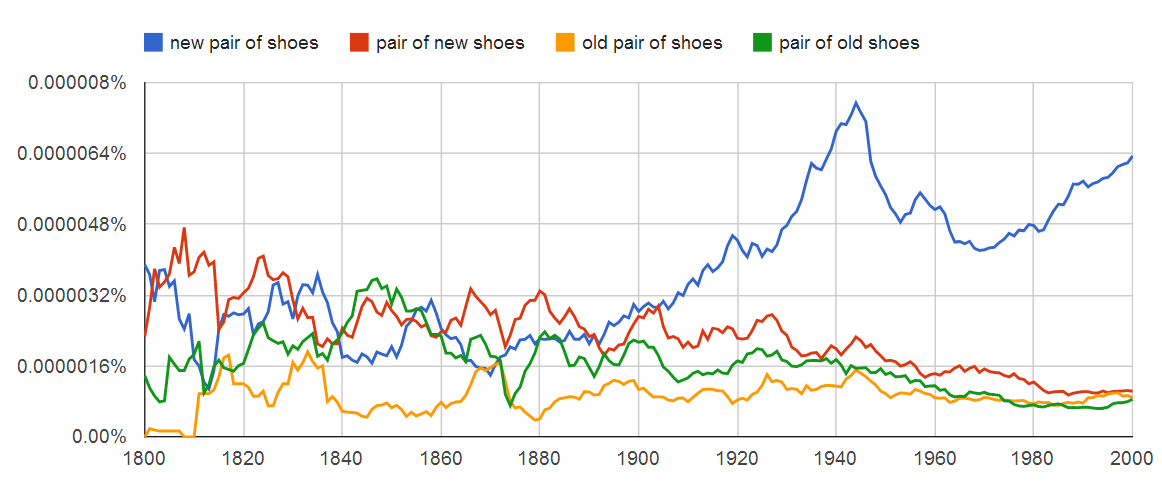In British English I am pretty sure that both usages would be correct but with different meanings.
A new pair of scissors implies that the pair is new, but not necessarily the scissors. For example, having tried to cut something and failed I might "try with a new pair of scissors". The scissors might be old.
By contrast a "pair of new scissors" implies the scissors are new (say newly bought at the shop).
EDIT
A better example (than scissors) would be the two example contexts:
"I spilled coffee on my leg, so I put on a new pair of trousers."
"I wanted to impress on my first day in the office, so I put on a pair of new trousers"
In the first example, the pair is new, in the sense that it isn't the pair (the "old pair") I was wearing when I spilled my coffee. But it is the pair that is new, the trousers could be old. In the second sense, it is the trousers that are new.
"Trousers" = "pants" in American English.

